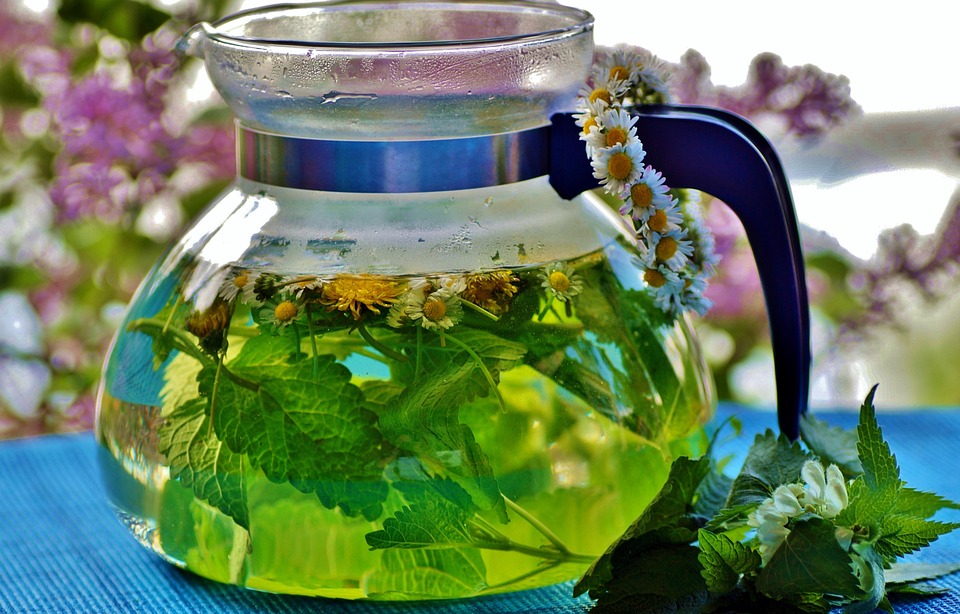10 Powerful Herbs That Heal are more than just a topic of conversation—they’re a gateway to a healthier, more vibrant life. Imagine reaching for nature’s own solutions instead of pharmaceuticals. Herbs have been used for centuries, and for good reason. They’re packed with antioxidants, vitamins, and minerals that support your body’s natural healing processes. Ready to discover how these enchanting plants can transform your wellness journey?
Contents
What Are Healing Herbs?
Healing herbs are botanicals renowned for their medicinal properties. They can help with everything from digestive issues to stress relief. The beauty of these herbs lies in their ability to work in harmony with your body, offering a more natural approach to health. You deserve to feel your best, and these herbs can help you get there.
Why Should You Care?
In a world overflowing with synthetic medications, exploring natural remedies is not just a choice; it’s a lifestyle. The significance of healing herbs extends beyond mere health benefits. They empower you to take control of your wellness. When you understand what these powerful herbs can do, you’ll feel inspired to incorporate them into your daily life.
1. Turmeric
Let’s kick things off with turmeric. This vibrant yellow spice is a powerhouse. Rich in curcumin, it boasts anti-inflammatory and antioxidant properties.
- Benefits: Supports joint health, improves brain function, and may even help combat depression.
- How to Use: Add it to smoothies, teas, or soups. You can also take it as a supplement.
Curcumin has been studied extensively for its potential in fighting chronic diseases. Harvard Health outlines some compelling findings.
2. Ginger
Next up is ginger—your go-to for digestive woes. This spicy root not only adds a kick to your meals but can soothe nausea and improve digestion.
- Benefits: Eases upset stomach, reduces inflammation, and may lower blood sugar levels.
- How to Use: Brew ginger tea, use it in stir-fries, or enjoy it candied.
Studies show that ginger can effectively combat nausea, particularly during pregnancy. Check out the insights from the National Center for Complementary and Integrative Health.
3. Garlic
Don’t underestimate garlic. This humble bulb is a culinary star and a health hero. Known for its heart-healthy properties, garlic can be your best friend in preventing illness.
- Benefits: Boosts your immune system, lowers cholesterol, and has anti-inflammatory effects.
- How to Use: Add fresh garlic to your dishes, or take garlic supplements.
Research has shown that garlic can reduce the risk of heart disease. For more information, visit the American Heart Association.
4. Peppermint
Peppermint is more than a refreshing flavoring; it’s a therapeutic herb you’ll want in your kitchen. Its cooling properties are especially beneficial for digestion and headaches.
- Benefits: Eases digestive issues, relieves tension headaches, and enhances mental clarity.
- How to Use: Brew peppermint tea, add fresh leaves to salads, or use essential oil.
According to studies, peppermint can significantly improve symptoms of irritable bowel syndrome. Learn more from Cleveland Clinic.
5. Holy Basil
Holy basil, or Tulsi, is a revered herb in Ayurvedic medicine. It’s known for its adaptability and balancing properties for the body and mind.
- Benefits: Reduces stress, combats inflammation, and supports respiratory health.
- How to Use: Brew a calming tea or incorporate it into your cooking.
Research indicates that holy basil can help lower stress levels and promote mental clarity. Discover more at Healthline.
6. Echinacea
You might know echinacea as the go-to herb for warding off colds. But its benefits go far beyond that.
- Benefits: Strengthens the immune system, reduces respiratory infections, and may shorten cold duration.
- How to Use: Take it as a tincture, tea, or in capsule form.
Studies show echinacea can significantly reduce the chances of catching a cold. For detailed insights, visit the National Institutes of Health.
7. Cinnamon
Delightfully aromatic, cinnamon is more than just a sweet addition to your apple pie. It’s a potent healing herb with numerous benefits.
- Benefits: Helps regulate blood sugar, fights inflammation, and boosts heart health.
- How to Use: Sprinkle it on oatmeal, use it in smoothies, or enjoy it in chai tea.
Research indicates that cinnamon can effectively lower blood sugar levels. For more on this, check the findings from WebMD.
8. Milk Thistle
If your liver could talk, it would thank you for considering milk thistle. This herb is known for its protective properties.
- Benefits: Supports liver health, detoxifies the body, and may lower cholesterol.
- How to Use: Take it as a supplement or tea.
Milk thistle has been extensively studied for its liver-protective benefits. Learn more from Mayo Clinic.
9. Lavender
Let’s not forget about lavender. This fragrant herb is a natural stress-buster and sleep enhancer.
- Benefits: Reduces anxiety, improves sleep quality, and can alleviate headaches.
- How to Use: Use lavender essential oil in diffusers, or brew it into a tea.
Studies show that lavender can significantly improve sleep quality. For more information, visit Sleep Foundation.
10. Chamomile
Finally, we have chamomile—your bedtime ally. This gentle herb is beloved for its calming properties.
- Benefits: Promotes relaxation, aids digestion, and can improve sleep quality.
- How to Use: Sip on chamomile tea before bed for a soothing ritual.
Research confirms that chamomile can help with insomnia and anxiety. For more insights, visit PubMed.
Getting Started with Herbs
Integrating these 10 powerful herbs that heal into your daily routine doesn’t have to be overwhelming. Here’s how you can begin:
- Start Small: Choose one or two herbs to incorporate into your meals or routines.
- Experiment: Try different preparations—teas, tinctures, or capsules—to see what works best for you.
- Listen to Your Body: Pay attention to how your body responds. Everyone’s journey is unique.
Safety and Considerations
While herbs are natural, they can still interact with medications or cause side effects. Always consult your healthcare provider before starting a new herbal regimen, especially if you’re pregnant or nursing.
Bottom Line
Embracing 10 powerful herbs that heal can transform your approach to health. These herbs not only offer a treasure trove of benefits but also empower you to take charge of your wellness. So go ahead—explore, experiment, and discover what works for you. Your body will thank you for it.
FAQ
1. Can I use these herbs if I’m on medication?
Always consult your healthcare provider before incorporating new herbs, as they can interact with medications.
2. How can I store fresh herbs?
Store fresh herbs in the refrigerator, wrapped in a damp paper towel, or in a jar with water like a bouquet.
3. Are there any side effects?
While most herbs are safe, some can cause allergies or interactions. Always do your research and consult a professional.
Start your herbal journey today and unlock the healing power of nature!
Get Your FREE Natural Health Guide!
Subscribe now and receive our exclusive ebook packed with natural health tips, practical wellness advice, and easy lifestyle changes, delivered straight to your inbox.




